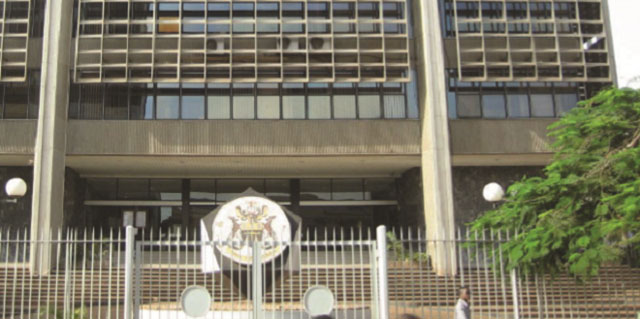
Bank of Uganda should utilize its mandate to regulate spending during 2021 electoral processes
COMMENT | Fred Kasalirwe | The recently concluded National Resistance Movement (NRM) primaries have seen massive monetization of the electoral processes with huge sums of money seen exchanging hands to influence voters’ decisions.
If this is just a snapshot of what is being expected in the general elections, then it should be noted that it will have implications on the economy’s monetary policy and macroeconomic stability.
That’s now why the role of the Central Bank and its independence will be central in events before, during and after the next election.
Since money is said to be the blood of the economy, an effective and well-managed central bank is critical for macroeconomic stability of Uganda’s economy. The fear is that the Central Bank could be influenced to print money or implement monetary tools that lead to release of more money in the economy in order to please voters.
As part of the government’s financial management system, central banks are usually organized as separate institutions because “the power of spending money should be separated from the power of making money.”
The spending or fiscal authority of the government, also called the ministry of finance, is directly influenced by elected officials who are motivated by short-run electoral considerations.
In an election year, for example, these officials would highly value short-run economic expansions, which stimulate growth and employment, while discounting the longer-run inflationary consequences of expansionary policies. If elected officials also have full authority over monetary policy, the drive to please voters would ultimately lead to hyperinflation.
In fact this has been accelerated by the COVID19 opportunity that has seen politicians passsupplementary budgets in bid manage covid19 pandemic.
It is therefore important to have an independent Central Bank.
Central bank independence refers to the freedom of monetary policymakers from direct political or governmental influence in the conduct of monetary policy.
In practice, there are four critical indicators of central bank independence. Firstly, a central bank is more independent if the chief executive, or governor, is appointed by the central bank board rather than by the government.
It is also more independent if the governor is not subject to dismissal and has a long term of office.
These aspects help insulate the central bank from political pressures.
Secondly, independence is greater if more policy decisions are made independently of government involvement-this includes both the setting of goals for monetary policy and the adjustment of instruments.
Thirdly, central banks are more independent if price stability is the only or primary goal of monetary policy. This is because some macroeconomic goals, such as higher economic growth and lower unemployment, may be in conflict with maintaining lower inflation or price stability.
Lastly, the independence of the central bank is greater if there are limitations on the government’s ability to borrow from the central bank. If the government can borrow without limits, there would be no limit to fiscal spending!
Therefore, a Central Bank that is too susceptible to political pressure may encourage economic cycles and hyperinflation. Politicians may be tempted to boost economic activity in advance of an election, to the detriment of the long-term health of the economy and the country.
There is a need to promote Central Bank Independence through appropriate legislation aimed at enhancing job security for the governor and board and increasing the Bank’s operational autonomy.
****
 The Author is a Research Fellow at ACODE
The Author is a Research Fellow at ACODE
The post Role of Central Bank crucial in election process appeared first on The Independent Uganda:.
from The Independent Uganda: https://ift.tt/33AQ1rV
0 Comments